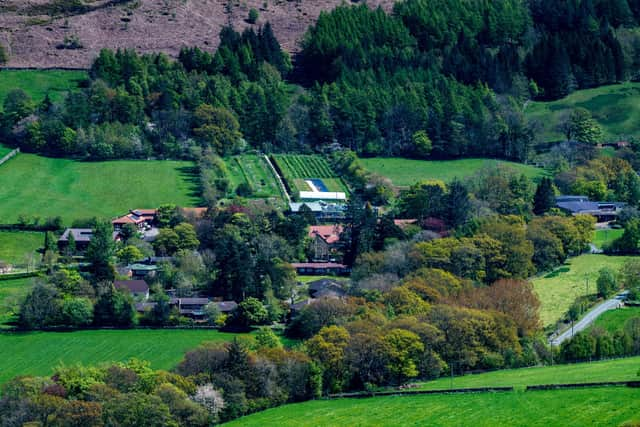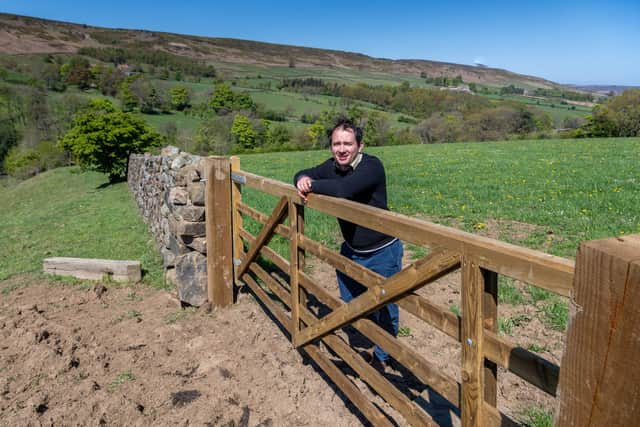Nature 'prescriptions' could be used in North York Moors as link between farming, the outdoors and health benefits intensifies
Earlier this month it was announced that a new project, led by the RSPB and the Peak District National Park Authority, would work with social prescribing services to trial ‘Nature Prescriptions’, a novel way to improve quality of life and wellbeing for people through nature.
It is the first time such a project has been trialled in England and very early stage discussions have been had in relation to using what is on the door step on the North York Moors.
Advertisement
Hide AdAdvertisement
Hide AdRobin Asquith, head of natural environment at The Camphill Village Trust, and himself a farmer has long held the view that nature and social farms can play a huge part in the health and well-being of the nation.


CVT support adults, aged between 18 and 70, with learning disabilities, mental health challenges and autism to lead a life of opportunity through its supported living schemes or day placements at ten locations across the country.
Three are in the north of England, including Botton village where residents live full time, and has a working farm; Larchfield near Middlesbrough is set in 160 acres of rural farmland and Croft at Malton has a community garden, cafe and workshops.
The Trust has just undertaken a review of its services to make sure its focus is on it being a land-based charity with a view to opening up its resources to more people and working on social prescribing projects with the North York Moors National Park.
Advertisement
Hide AdAdvertisement
Hide AdMr Asquith, who in addition to his work with CVT has his own livestock and poultry farming business, said: “Something we are looking at is allowing other people to access our sites and services, we are aware of the potential for more people.


“We have had some informal discussion with the North York Moors National Park but that is in the early stages but it would be nice to develop something (like the Peak District nature prescription). A lot of people come to the national park because they like the environment and being in it.
“Making that more accessible will be beneficial. People are happier in themselves, it improves their own life, chances are they will go to the doctors less, reduce anxiety and stress and that will have a positive impact on health services.”
The evidence he says is in the people that CVT supports and the way they react to being outside and working with nature and animals.
Advertisement
Hide AdAdvertisement
Hide AdAt Botton Village, which is near Danby in the North York Moors, residents work on the farm doing jobs from milking to cheese-making for example. At the community garden in Malton, people on placement grow produce which is then used to make food for the cafe.
Mr Asquith said: "We are a land based operation so land, environment and food is a core element of our work and feed that into everything we do. There is nothing out of bounds really other than maybe tractor driving.
"We believe that it being a working farm gives the placements people come on more meaning and are doing something for a reason. It gives them the opportunity to learn and get new skills.”
“It is huge, I don’t know what that is but there is something about being outdoors, actual fresh air and sun on your back that makes you feel happy. We see it in people we support, they come to life when they come to the farm, they talk and engage more.”
Advertisement
Hide AdAdvertisement
Hide AdThe Camphill movement, as it came to be known was founded in Scotland in 1939 by Austrian Doctor Karl König who had significant experience in working with children with a learning disability within a residential setting.
